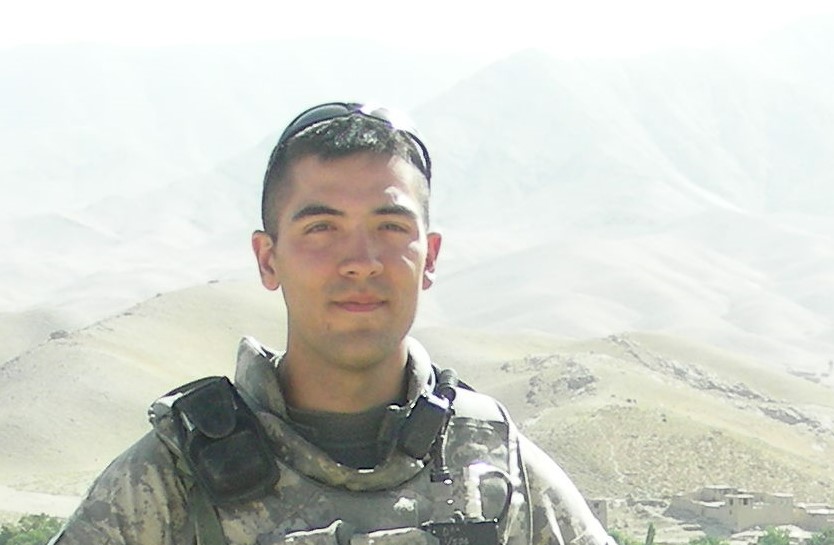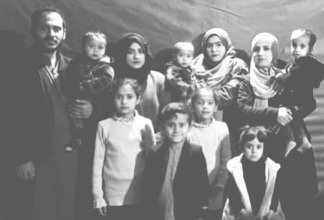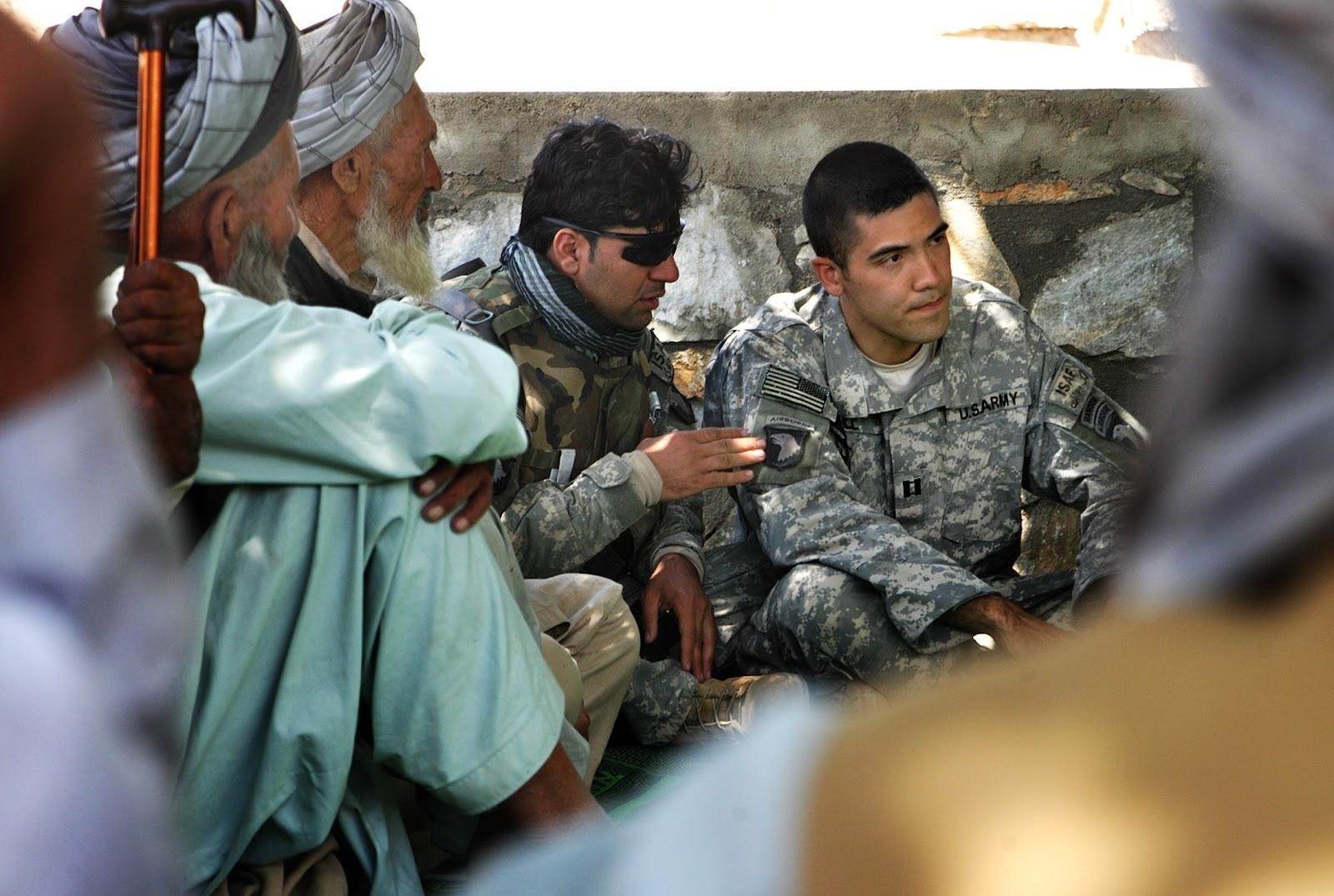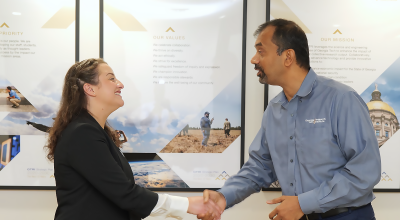
GTRI Senior Research Engineer and Georgia Tech alumnus Roger Hill is on a mission to help rescue Afghan families who have supported the U.S. military out of Afghanistan.
Hill is working on these efforts with CMM World, a faith-based nonprofit that supports humanitarian aid, disaster relief, and anti-human trafficking efforts worldwide. In particular, Hill is eager to help a trio of brothers under the "Moz" family alias start a new life in the U.S. or another NATO country. All three brothers worked for U.S. forces during the 20-year conflict. Two of the three brothers were interpreters for front-line combat units, one of which was the infantry company Hill led in Afghanistan in 2008.
As chaos erupted in Kabul in late 2021 amid the departure of U.S. troops, Hill said he was among thousands of veterans who received frantic calls for assistance from Afghans who had faithfully served the U.S. over the years. One of those calls came from one of the brothers who had worked for Hill.

"We owe a debt of gratitude to those who support the U.S. in global conflicts," Hill said. "These interpreters are the ones on the front lines, putting themselves in harm's way, alongside our Soldiers and Marines, and if we take care of anybody, it's got to be these guys and their families."
Rewinding to 2008, Hill, a West Point graduate and U.S. Army Ranger who also earned an MBA from Tech, was stationed in eastern Afghanistan as the commander for a heavy weapons infantry company. The company's call sign was "Dog Company" of the famed 506th Parachute Infantry Regiment, which is the same unit that originated in Toccoa, Ga., and has been featured in the HBO series "Band of Brothers."
After months of intense fighting, where over two dozen of Hill’s men were wounded and two were killed in action, Hill discovered that several Afghan contractors hired by the U.S. military to support his team's operations had been serving as double agents and were reporting the group's movements to enemy troops in the area.
The tragic twist: One of those double agents was Hill's personal interpreter and someone Hill had been working to move to the U.S. on a Special Immigrant Visa (SIV). A SIV is an immigration program that grants permanent residence to people who aided the U.S. government abroad.
"My personal interpreter’s betrayal was heartbreaking as I had planned to serve as his SIV sponsor like I had done so for two other interpreters from my 2006 Iraq deployment." Hill said.
U.S. troops in the Middle East and elsewhere often recruit local interpreters to support their operations. A company like Hill’s would be assigned at least a half dozen interpreters by the U.S. Army. These front-line combat interpreters play a key role in building rapport with the local community, gathering crucial intelligence, and facilitating combat engagements. They are also the conduit for nearly all communications with the host nation, its military, and people. After serving the U.S. military for at least two years, interpreters can apply for a SIV, but the visa application process can take months or even years, putting the lives of interpreters and their families at risk.
Hill has written about his experiences in a book titled "Dog Company, A True Story of American Soldiers Abandoned by Their High Command."

Hill also praised the Georgia Tech Research Institute (GTRI) for its dedication to serving national security and supporting military members within its organization. Hill, who first joined GTRI in 2009 fresh out of the military, noted that many veterans do not have the opportunity to build a professional network while in uniform and often enter the workforce at a disadvantage compared to peers.
"I’d like to thank Dr. Bill Melvin, Dr. Tommer Ender, and Terry Tibbitts," Hill said. "I really appreciate the opportunity they and GTRI have given me and many other veterans."
Veterans, Guard and Reserve members, and family members of the military at GTRI can find support and community within GTRI's SERV@GTRI employee resource group, as well as the Hiring Our Heroes (HOH) program. HOH launched at GTRI in 2021 and helps veterans and families of military members find civilian employment.
If you are interested in learning more about Hill's work and rescue efforts with CMM World, please visit: Dog Company: A True Story of American Soldiers Abandoned by Their High Command – CMM World.
Writer: Anna Akins
Photo Credit: Roger Hill
GTRI Communications
Georgia Tech Research Institute
Atlanta, Georgia USA

The Georgia Tech Research Institute (GTRI) is the nonprofit, applied research division of the Georgia Institute of Technology (Georgia Tech). Founded in 1934 as the Engineering Experiment Station, GTRI has grown to more than 2,800 employees, supporting eight laboratories in over 20 locations around the country and performing more than $700 million of problem-solving research annually for government and industry. GTRI's renowned researchers combine science, engineering, economics, policy, and technical expertise to solve complex problems for the U.S. federal government, state, and industry.
Learn more at www.gtri.gatech.edu and follow us on LinkedIn, Twitter, Facebook, and Instagram.




